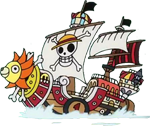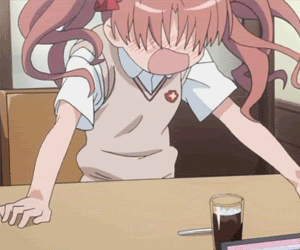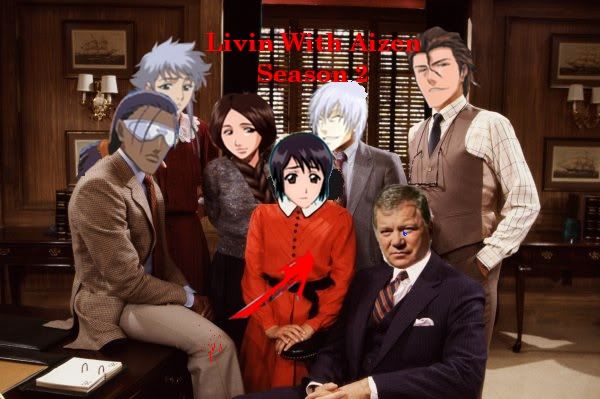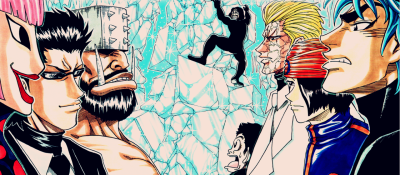It has come to my attention that, over the course of his posts, Zoom has used the word 'Starscream' on at least two occasions. What does this mean? Is anyone here familiar with this name, aside from old Transformers fans? Exactly what would he be trying to tell you, and why use a character from a rather camp part of the eighties? It nibbled mat my mind for a while, gnawed away at my lobes as I looked for alternatives. But there are none, and it is with both relief and scorn that I resign my search for them. The answer to one of the great many problems we are dealing with is very simple.
Zoom may, or may not be a Troper, but either way considers it a good source on learning about literature and literary techniques.
Some of you might be aware of my derision regarding this place, this TVTropes.org. If that is not the case, then do not worry. I will not be so vague regarding this as other subject. While I taste blood at the thought of linking it here, the article labeled 'The Starscream' will be seen by being copy-pasted into the sub-section below.
[hide]The Starscream: "Yes! Right then… Solemn face, solemn face..." — Starscream, Transformers Animated, on Megatron's apparent demise.
"Time makes all things possible. I can wait." — The original Starscream, The Transformers, to Megatron, on getting his job. In some stories the Big Bad casts a shadow over everyone: They might be afraid of him, they might be his minions, or they might be the heroes trying to defeat him. A certain type of character falls outside this pattern: a villain too ambitious or stubbornly individualistic to accept the supremacy of the Big Bad. Instead, this villain actually dreams about overthrowing the guy everyone else fears and taking his place. Sometimes he is a (grudging) servant of the Big Bad; sometimes he is entirely outside the established power structure. Either way, if the Big Bad ever stumbles or shows weakness, the Starscream will be there, ready to kick him out of the Astrotrain. Depending on the nature of the character, he may be an over-optimistic fool or someone who might actually be able to pull it off. If the character is badass enough, the heroes might be forced to try and stop him from toppling the original villain. Usually fond of playing Commander Contrarian to their boss' schemes (deservedly or not), who will normally Neck Lift them into cowtowing to their will. It can be hard to justify why the Big Bad keeps them around, but it may most commonly be so the Big Bad has a reason to always keep his guard up. Differs from the Reliable Traitor in not always working for the Big Bad and in his reasons for working with the villain (if indeed he does so). Not the same as The Dragon getting a promotion when he survives the Big Bad's downfall—That's Dragon Ascendant. Also not to be confused with Dragon Their Feet, where the Big Bad's right hand man screws his boss over by strangely being absent at a bad time. Compare and contrast Dragon with an Agenda, who has different goals from the Big Bad but is at least nominally loyal and generally won't turn on the Big Bad unless said goals are threatened. If The Starscream succeeds in taking over the mantle of Big Bad from his superior, the former Big Badmay have actually been a Disc One Final Boss. Quite strongly related to the Sith Rule of Two (see: film), where this is expected and quite nearly mandated. Many examples can end up being The Millstone if their schemes consistently screw up the Big Bad's plans enough to let the heroes keep pulling off wins. See also Bastard Understudy, with a similar attitude but more subtlety and patience, and The Dog Bites Back, for when the attacker has not planned but takes advantage of weakness (and/or Right Makes Might if said attacker was actively abused by his new victim.) Often involves Nice Job Fixing it Villain. All examples prone to contain Chronic Backstabbing Disorder. Contrast Sarcastic Devotee and Professional Butt Kisser. Contrast also The Paragon Always Rebels, where the Number Two on the side of good becomes the Big Bad.
[/hide]
You may have noticed a number of words that make no sense. This is a natural reaction to such a heavy load of bilge, in addition to why all of this is relevant. First, let us see what exactly the 'mission' of TVTropes.org is.
[hide]Welcome to TVTropes! What is this about? This wiki is a catalog of the tricks of the trade for writing fiction. We dip into the cauldron of story, whistle up a hearty spoonful and splosh it in front of you to devour to your heart's content. Tropes are devices and conventions that a writer can reasonably rely on as being present in the audience members' minds and expectations. On the whole, tropes are not clichés. The word clichéd means "stereotyped and trite." In other words, dull and uninteresting. We are not looking for dull and uninteresting entries. We are here to recognize tropes and play with them, not to make fun of them. The wiki is called "TV Tropes" because TV is where we started. Over the course of a few years, our scope has crept out to include other media. Tropes transcend television. They exist in life. Since a lot of art, especially the popular arts, does its best to reflect life, tropes are likely to show up everywhere. We are not Wikipedia. We're a buttload more informal. We encourage breezy language and original thought. There is No Such Thing As Notability, and no citations are needed. If your entry cannot gather any evidence by the Wiki Magic, it will just wither and die. Until then, though, it will be available through the Main Tropes Index.[/hide]
At this point I was choking on the fumes which were steaming from the lump that had been shoved down my throat. Attempts to remove it were stifled by Avatar the Last Airbender: Legend of Aang film ads that popped up on the left of the page. Yet during that moment, I could not help but chuckle with stench and shame as they declared 'This wiki is a catalog of the tricks of the trade for writing fiction'. Then I saw the descriptor 'There is No Such Thing As Notability', and remembered where I was.
In an attempt to appeal to the new viewers, a peculiar line was added to the entry:
"On the whole, tropes are not clichés. The word clichéd means 'stereotyped and trite.' In other words, dull and uninteresting. We are not looking for dull and uninteresting entries."
This is painfully disingenuous. It reads to give the impression that there's a large amount of difference between a trope and a cliche - the impression is mistaken. The best way to describe a trope is as a pattern, a recurring element in works across the spectrum. This was mostly known within writing circles during the old days, but then one thing led to another and now everyone's indulging in dreary repetitive dung. TVTropes talks as if there's a major difference between tropes and cliches, but they are wrong to the point that they do not even recognize that a great number of tropes on their site are, in fact, embarrassing cliches. In more ways than one, a trope is not a cliche simply because it hasn't been recognized as one for whatever reason. The great irony in all of this is that a good number of their pages are so bloated and overly stuffed with pointless and insignificant tropes that you can sometimes determine how good a work and it's article is solely on how conservative the rabid hordes of Tropers are when it comes to editing.
What makes it all the more sad is that most of these Tropers forget, or simply gloss over the fact that the site was originally intended for informality. Along the way, Fast Eddie decided to conveniently forget this, and pushed the concept away into a small little box while raving losers posted self-produced Fanfiction wherever they could. While horrible enough in the first place, the 'No Notability' policy was only worsened by these people who took everything on the site as a genuine resource for writing. It's a very strange thing to imagine that on a site that prominently features unmentionable anime and dozens upon dozens of pages dedicated to fetishes. And yet you still can't help but feel shame in your typing fingers when stories like the Library of Babel are accompanied by an image from some random anime nobody cares about that manages to completely miss the point of the source.
This is not a place for writing. Tropes are not 'devices and conventions that a writer can reasonably rely on', and you should not use them because the audience is expecting them or knows of them. You shouldn't be using them in the first place. That is not how writing works, that is not how good, creative writing works. You do not go in with a pen, paper, or a rectangular surface of buttons with a list of platitudes and stereotypes. You go in to write a story, put into letters the creative progeny that you've nurtured and grown with your life, it's experiences and inspirations. If a trope should be recognized in it, that is fine. It is not a bad thing, as a cliche is not automatically despised on the basis of being a cliche. These are things everyone happens upon at least once in their literary life.
And like so many others, Zoom seems to forget this. Why else would he defend Bleach by referencing a page chocked full of monotony that revolves around a character from another bad children's cartoon?













 This takes me back to how I first met Juju after I told everyone that I indeed liked Sasuke. I need to find the responses. Such love. :wub:
This takes me back to how I first met Juju after I told everyone that I indeed liked Sasuke. I need to find the responses. Such love. :wub:

